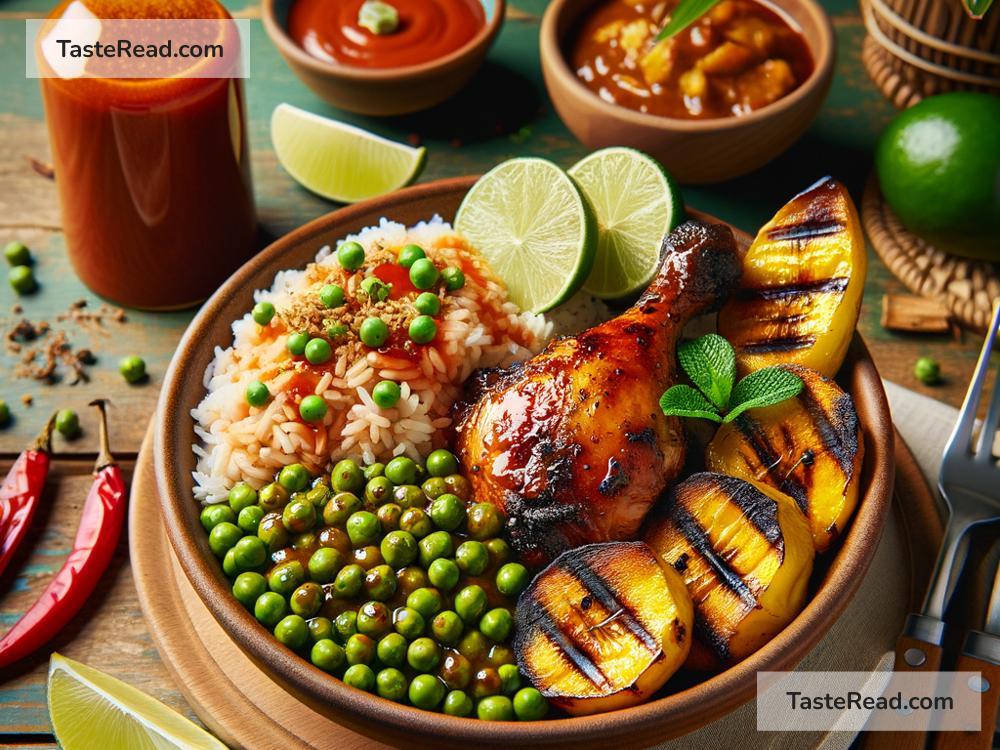The Influence of Caribbean Jerk Cuisine
Caribbean jerk cuisine is one of the most iconic food traditions in the world. Known for its bold flavors, vibrant spices, and smoky aroma, jerk has made a powerful impact not only in the Caribbean but across the globe. From small family barbecues on the islands to popular jerk chicken stands in cities like London or New York, this flavorful cooking style has become a beloved culinary practice far beyond its home region. Let’s explore how jerk cuisine came to be, what makes it special, and how it has influenced food worldwide.
What Is Jerk Cuisine?
The term “jerk” refers to both a style of cooking and a unique blend of seasoning. Jerk seasoning is made from a mix of spices and herbs, often including cinnamon, nutmeg, thyme, garlic, allspice, ginger, Scotch bonnet peppers, and pimento (also known as allspice berries). These ingredients give jerk dishes their signature mix of heat, sweetness, and earthiness.
Jerk cooking traditionally involves marinating meat, often chicken or pork, with the seasoning and then grilling or smoking it over pimento wood. This wood is native to Jamaica and adds a smoky flavor that enhances the spice mix. The combination of the seasoning and cooking method creates tender meat with a rich, spicy flavor that people crave.
The Roots of Jerk Cuisine
Jerk cooking has a deep history connected to the island of Jamaica. It is believed to have originated with the Maroons, African people who escaped slavery and formed their own communities in Jamaica’s mountains. The Maroons used traditional grilling techniques and local spices to cook their food in a way that would preserve it and make it flavorful. Over time, their methods evolved into what we now call jerk cuisine.
For the Maroons, the use of pimento wood and spices was not just about flavor—it was also practical. Cooking food underground or in pits helped hide the smoke from their fires, keeping them safe from being found. This survival method eventually became a beloved cooking tradition.
What Makes Jerk Cooking Unique?
One of the key features of jerk cuisine is the balance of flavors. The heat comes from Scotch bonnet peppers, a type of chili pepper known for its fiery spiciness. Sweetness comes from spices like cinnamon and nutmeg, and herbs like thyme add freshness. When combined, these ingredients create a surprising and unforgettable flavor.
Another unique aspect of jerk food is how it’s cooked. Using pimento wood for grilling or smoking gives the meat a distinct smoky taste that can’t be replicated with regular charcoal or gas grills. Plus, jerk is versatile—it’s not just limited to chicken or pork. Today, you can find jerk fish, shrimp, tofu, and even jerk vegetables, proving that this flavorful cooking method works with all kinds of food.
Jerk Cuisine Goes Global
Though jerk cuisine started in Jamaica, it didn’t stay there for long. As Jamaicans migrated to countries like the U.S., Canada, and the UK, they brought their food traditions with them. Today, jerk restaurants, food trucks, and markets can be found in countless cities worldwide, offering people a taste of Caribbean culture.
In places like New York City, jerk chicken is as popular as pizza or burgers. In London, Caribbean food festivals celebrate jerk cuisine alongside other island dishes like curry goat and plantains. Even in places far from Jamaica, grocery stores now sell jerk marinade, making it easy for anyone to try jerk cooking at home.
Beyond its popularity in restaurants and markets, jerk cuisine has also influenced professional chefs who incorporate its signature spice blend into their menus. For example, some chefs create fusion dishes like jerk tacos or jerk pasta, combining Caribbean flavors with other global cuisines.
Why Jerk Cuisine Matters
The spread of jerk cuisine is more than just about good food—it’s also a way for Jamaican culture to be shared with the world. Every plate of jerk chicken or pork tells a story of resilience, creativity, and tradition. That story connects people to Caribbean history and teaches us about how food can bring people together.
Jerk cuisine also highlights the use of fresh, natural ingredients. In a world where processed food can be unhealthy, jerk dishes remind us of the joy and flavor that comes from cooking with spices and herbs straight from the earth.
Conclusion
Caribbean jerk cuisine has traveled far beyond Jamaica, making an impact on the global food scene. Its bold flavors, unique cooking methods, and rich history have gained fans all over the world. Whether you enjoy jerk chicken from a local food truck or try your hand at making jerk shrimp at home, you are participating in a centuries-old tradition rooted in culture and community.
By embracing jerk cuisine, people not only celebrate incredible flavors but also honor a piece of Jamaican history that continues to inspire chefs and food lovers everywhere. The next time you take a bite of jerk-seasoned food, think about the journey of this amazing culinary tradition—and savor the taste of the islands!


